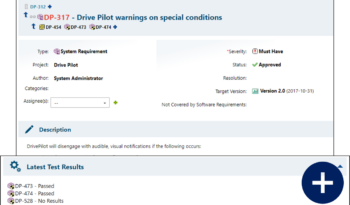While Polarion doesn’t support you in doing the writing itself (atleast OOTB – checkout ReqLab on Polarion Extensions), it has a lot of features to speed up the creation process, while caring about all the things like Revisioning and Traceability,
WeiterlesenUse Case: How to easily create a System Specification with Polarion – Fast & Audit-Safe










